10 things that make you instantly more employable
You don’t have to spend years learning a new language or gaining a second degree to become more employable or the chances of getting onto your dream course. Here, Kristoph Thompson explains how to make an instant difference and become more employable.
Use social media
Use networking sites such as LinkedIn to post your CV, making it easier for employers to find out about you and your capabilities. Make sure people can only see what you want them to. All your hard work could be undone in an instant if a prospective employer were to come across the pictures from your last big night out.
Key Skills
A Brunel University focus group (www.brunel.ac.uk) showed that the skills and qualities most valued by employers are communication, a willingness to learn, commitment, motivation and drive/energy. Check your CV, covering letter and personal statement and make sure you’ve included examples of when you’ve demonstrated these skills as this will help you become more employable.
Mock interview
Film yourself answering typical interview questions. Seeing how you come across in an interview situation highlights any areas for improvement. Pay attention to your tone of voice and how quickly you speak, as well as your body language and gestures.
Train to gain
Show a willingness to learn and enhance your skills by doing some additional training. Vision2learn (www.vision2learn.com) offers free online courses in a range of areas including management skills, customer service and business technique, many of which can be completed in a day and will increase your chances of becoming more employable.
Intern/Temp work
‘It’s extremely important that you can show a demonstrable commitment to the career of your choice, and self-motivation,’ says Rachel Gambiragio, Human Resources Manager at Freedom Leisure (www.freedom-leisure.co.uk). Spend the afternoon arranging work placements. This will give you an inside view of your chosen sector, as well as some useful contacts.
SWOT up
Identify your strengths, weaknesses, opportunities and threats. ‘Work out what differentiates you from other candidates, rather than just focusing on the skills that others are also likely to have,’ explains Occupational Psychologist Julianne Miles (www.careerpsychologists.co.uk). This will help you to target the jobs that are the best fit for your strengths and to be more confident in interviews.
Public speaking
A recent survey of the members of the Institute of Directors identified verbal communication as one of the most desirable skills in prospective employees. Hone your public speaking skills at a Toastmasters meeting (www.toastmasters.org). This not-for-profit organisation holds regular meetings nationwide to help members improve their communication and leadership skills.
Get on the phone
‘Speaking to someone that is already doing your dream job will give you a wealth of knowledge about the day-to-day nature of the job and a greater understanding of how to get there,’ says Lianne Kennedy from The Training Room (www.thetrainingroom.com).
Change your email
There’s no point writing a professional CV and then asking potential employers to contact you at stoner69@hotmail.com. Set up a professional email using just your name, better still, set up your own website and use it to showcase your strengths and achievements.
Personality
‘Experience can be an advantage, but sometimes personality is more important as we can always provide more training, says Michelle Bletso, Group Fitness Development Manager for Everyone Active (www.everyoneactive.com). Make sure your personality shines through in your personal statement, during work experience and in everything you do.

